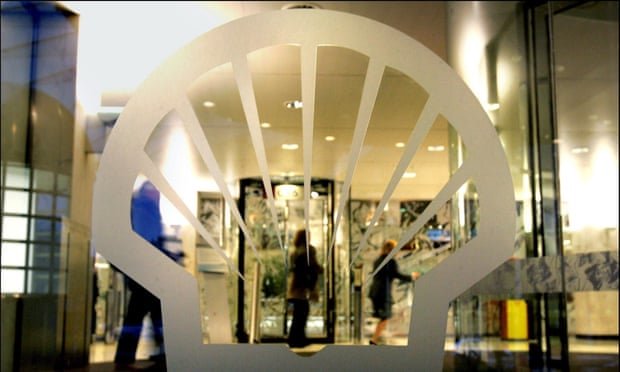
Shell has sparked a political tussle over the location of its headquarters after announcing it would relocate to London and lose “Royal Dutch” from its name amid a corporate overhaul that has angered the Netherlands.
In a move seized by the UK government as a post-Brexit vote of confidence in the City of London, Europe’s largest oil firm said it would drop a complex dual share structure and move its headquarters and tax residence to the UK.
However, the plans were greeted with dismay in the Netherlands, where politicians said they were “unpleasantly surprised” by the firm’s decision to abandon its headquarters in The Hague – a move that would come at a heavy cost to Dutch taxpayers.
Shell will no longer meet the Dutch conditions to qualify for its “royal” designation for the first time in more than 130 years, a change that will be put to a shareholder vote next month alongside broader plans to simplify its ownership structure.
Announced against a backdrop of political uncertainty in the Netherlands with a government yet to be formed after elections earlier this year, it is understood politicians from multiple parties are in frantic talks about how to change Shell’s mind.
A source familiar with the situation said the prime minister, Mark Rutte, who is expected to extend his 11-year tenure, is exploring proposals to scrap a 15% dividend tax that Shell has cited as one of its reasons for leaving.
Discussions are understood to be at an early stage, with politicians yet to secure approval from their colleagues before agreeing a deal with potential coalition partners.
Rutte’s coalition government had previously moved in 2017 to scrap the tax, long a source of frustration for Shell and the fellow Anglo-Dutch company Unilever. However, the plan was dropped after a political backlash, and as Unilever decided to move its headquarters from Rotterdam to London.
The talks to abolish the dividend tax, first reported by the Financial Times, are understood to have been hastened by a feeling that something has to be done now to appease Shell, even if it means acting before a new government can be formed.
The UK’s business secretary, Kwasi Kwarteng, welcomed Shell’s relocation proposals on Twitter and suggested it was part of the firm’s plans to transition to a clean energy provider. “A clear vote of confidence in the British economy as we work to strengthen competitiveness, attract investment and create jobs,” he said.
With a market valuation of more than £125bn, Shell’s move to pick Britain as its sole home is seen in Westminster as a post-Brexit coup after it emerged earlier this year that Amsterdam had overtaken London as Europe’s largest share trading centre, a largely symbolic blow.
As part of the changes announced to the stock exchange on Monday morning, Shell’s chief executive, Ben van Beurden, and the chief financial officer, Jessica Uhl, will move to London, where the company’s board meetings will be held.
According to the details of the plan, the firm intends to scrap a dual share structure that divides stock into A and B classes listed on the London and Amsterdam stock exchanges. It will, however, continue to trade in the Amsterdam, London and New York markets.
The company said the change would allow Shell to return more cash to shareholders, including through share buybacks, since there will be a larger pool of ordinary stock to target. Currently, the structure only allows for about $2.5bn (£1.8bn) a quarter
The move comes months after a court in the Netherlands ruled that Shell must reduce its carbon emissions by 45% by 2030 relative to 2019 levels. The landmark case, brought by environmental groups and more than 17,000 Dutch citizens, applies only in the Netherlands. Shell confirmed in July it would appeal against the ruling.
Shell insisted it would continue to be a “significant employer” in the Netherlands, where it still plans to have have a “major presence”. Certain parts of its business, including its projects and technology divisions, and renewable energies hub, will remain in The Hague, it added.
Shell’s chairman, Sir Andrew Mackenzie, said the overhaul was about simplifying the business. “It will normalise our share structure under the tax and legal jurisdictions of a single country and make us more competitive.
As a result, Shell will be better positioned to seize opportunities and play a leading role in the energy transition. Shell’s board unanimously recommends shareholders vote in favour of the proposed resolution.” Shareholders will be asked to vote on the changes on 10 December.